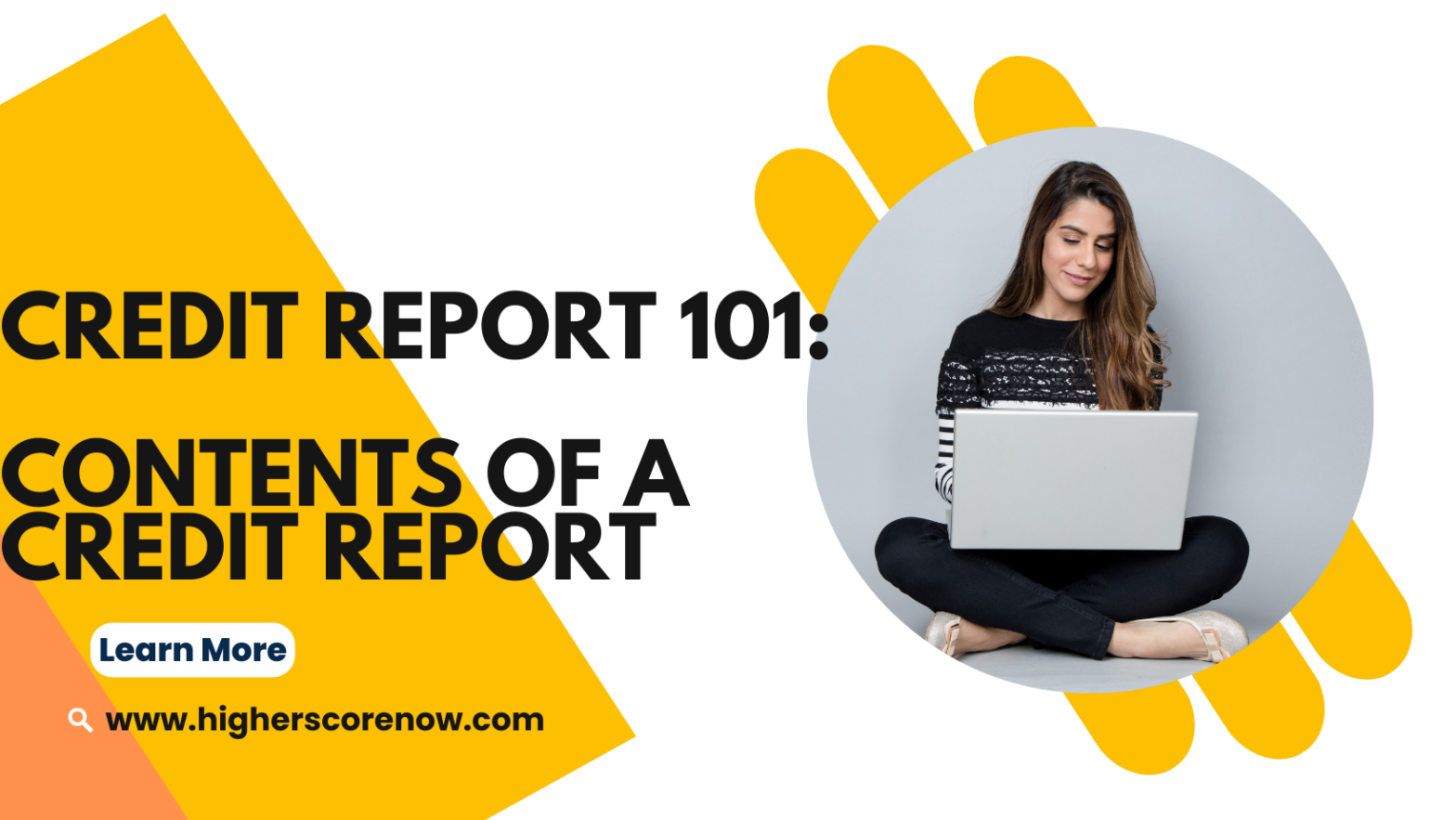Staying on top of your credit reports can help you to discover errors that might be affecting your credit scores. It can also alert you to the possibility of identity theft. Disputes can be filed to have the errors removed, resulting in potentially improved credit access and terms. First, learn how to access your personal credit report information for free.
There are two ways in which you can obtain credit report information without charge:
- You can get a free copy of your credit report from the three credit bureaus using AnnualCreditReport.com. This was originally available once a year, however, due to the COVID-19 pandemic, it is now possible to obtain a free report every week up until the end of 2023.
- Various personal finance websites, such as NerdWallet, provide free credit report details. NerdWallet also gives access to the VantageScore 3.0 from TransUnion and refreshes the report on a weekly basis.
Understanding the Contents of a Credit Report
The contents of a credit report remain the same regardless of the bureau, though the sections may be positioned in a different order. Once you know how to read a credit report from one bureau, you got all covered. Generally, the report is comprised of the following components:
Personal Information
The data concerning you that will be collected encompasses past and present names, contact details, partially concealed Social Security number, date of birth, and current and previous places of employment.
It’s not uncommon to find multiple spellings of your name when searching online. These can include the name you used when applying for credit, a married name, the name with or without a middle name or initial, and even an abbreviated version of your first name.
If any of your employers or phone numbers are missing, it’s not a big deal However, take note of any addresses that are unfamiliar to you — particularly if you notice accounts that you do not recognize. This could signify that somebody has employed your personal details to create false accounts under your name. Promptly report identity theft if you uncover it.
Account Details
Here you will find a list of all your accounts that remain up-to-date and have not been taken to collections agents or gone into default. This information is the main focus of your credit report. At the beginning of each account, you should be aware of the following components, which appear as a summary:
- Information needed from the creditor: the name, address, account number, and the date that it was opened.
- The condition of the account – be it active, closed or transferred – and if you are up to date with payments must be noted. Accounts in a good position when the COVID-19 payment arrangements were initiated must still be reported as present.
- The type of financial account (such as a credit card or student loan).
- If you are the sole proprietor of the account, have joint ownership, or are an authorized user.
- The original sum of the loan which is to be paid in installments.
When looking at your report, you’ll find details about your balance and payments, including the date when the creditor last shared info with the bureau. However, this amount may not be up to date with your current balance. For example, even if you make all payments for your credit card on time, the report may still show a balance if the activity was reported during the billing cycle.
Verify that your payment history is accurate, ensuring that any late payments reported are accurate. Additionally, confirm that the credit limits associated with your accounts are correct as they will have an impact on your credit utilization ratio, and in turn, your credit score.
If a credit account has been terminated, your credit report will indicate the person who closed it and when. Accounts that were closed in good standing can remain in your credit report forever. Accounts that were shut down by the lender because of your failure to meet payment obligations should be wiped from the report after seven years from the date when the account first became overdue.
Any unfavorable information
The credit report will display any accounts that have not been paid according to agreement, as well as collections and public records such as bankruptcies. Generally, this negative information will remain visible on the report for seven years, except Chapter 7 bankruptcies, which stay for 10 years.
Make sure any negative information reported in this section is accurate. If you notice inaccurate accounts or collections, or something that is being listed after it was supposed to be removed, dispute the entries quickly to have them taken off your report.
Credit Inquiries
Your credit report contains a section that shows when someone has taken a peek at it. You will come across these inquiries when you are looking to apply for a new line of credit or an increase in your limit, as well as when you are applying for a mortgage or signing up for utilities. The entries may be classified according to type.
- If you give the go-ahead for a creditor to review your credit report to assess your application, a hard inquiry is initiated. This will likely result in a slight, fleeting decline in your credit ratings.
- When you personally review your credit report or a possible lender considers whether to present you with an advertising offer, a soft inquiry is made that has no influence on your credit scores.
Ensure that the name, address, and date of the organization are included in both types of inquiries. Additionally, make sure that any hard inquiries were approved by you and that they will disappear from your report after two years.
What Facts are Excluded from the Credit Reports You Receive?
You can’t find your credit score on your credit report. Nevertheless, the information on the report is important for determining your credit score. Here are some other elements that are not included in the reports:
Compensation
This can include base pay, bonuses, stock options, and other forms of compensation. Your salary is not a factor in your credit reports or scores, yet it still has a substantial impact on your day-to-day life.
Occupation Status
A person’s job status can be of great significance. Credit reports tend to include your places of employment as part of the identification process, but do not indicate when your employment with those companies came to an end. This data is gathered from applications for credit you have previously filled out.
Marital Status
Marital state and the credit history of a partner are factors that have an effect on your own credit score. When you tie the knot, your credit reports do not. Each individual will still have his or her own credit report and it will not influence the other’s. However, it is worth noting that any accounts opened together, such as a mortgage or shared credit cards, will be reported on both credit reports, and any mistakes like late payments may have an effect on both of you.
Possessions
No information about your financial assets, like bank accounts, 401(k)s, and investments, is present on your credit reports.
Taking a Loan From a 401(k) Plan
Borrowing from yourself does not get reported on credit reports; however, it is usually not recommended as it could hurt your savings for retirement.
If You Find Problems, Dispute Them
If you uncover errors on your credit report that could be damaging your scores, you’ll need to provide proof in order to support your claim. You can challenge credit report mistakes with the credit agency by giving them copies of paperwork that verifies your identity and outlines why the information is wrong. The bureau has a 30-day window to investigate and reply, though due to the pandemic, the Consumer Financial Protection Bureau has issued guidance prolonging that to 45 days.
FAQs
How do I get my credit report?
You can obtain your free credit reports from the three main credit bureaus by visiting AnnualCreditReport.com or an online financial resource that supplies free credit report details, such as NerdWallet. After that, analyze the information and search for any discrepancies.
What information is included in a credit report?
Your credit report will feature your personal details, current accounts, queries, and any negative markings, including bankruptcy, that might be present.
What is an acceptable range of credit scores?
Having a high credit score is typically between 690 and 719.
Thank you for reading our article. We hope you learned new ways to battle creditors and banks while protecting yourself.
We would encourage you to become a member of HigherScoreNow.com and start to leverage all the benefits of having good credit. You deserve this.

